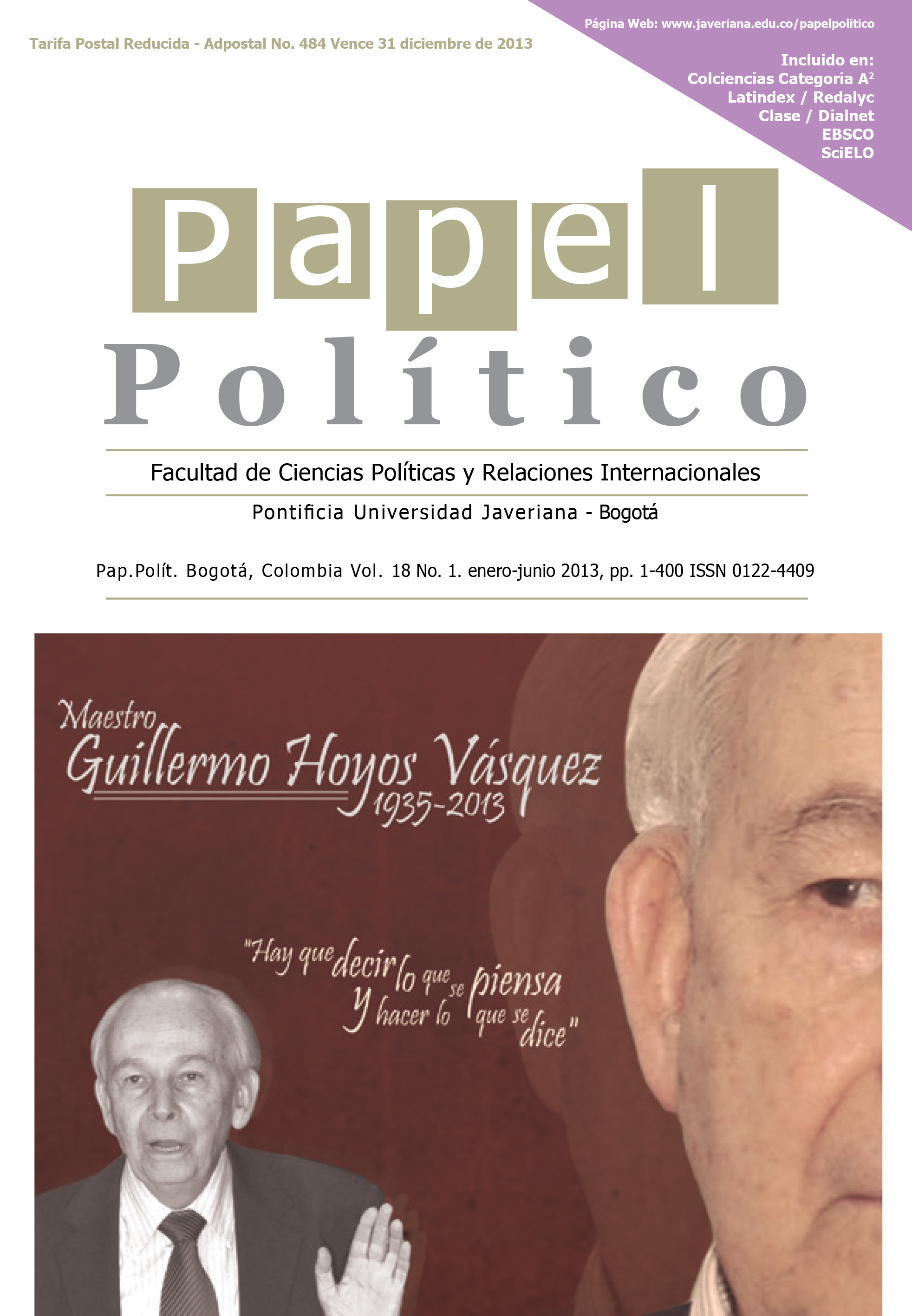Abstract
The article discusses the process of institutionalization of teaching political science in Colombia between 1968 and 2012. It is based on an approach to institutionalization of disciplines that includes teaching, research and the academic community, but it only develops the first dimension. The central argument is that on the basis of significant events we can identify three periods, and that each of these corresponds to different degrees of institutionalization. The first (1968-1989) corresponds to the beginnings and s characterized by a weak institutionalization, in addition to an exclusive focus on Bogota and private universities. The second period (1989-2000) corresponds to a gradual expansion, but with high concentration and disciplinary structural weaknesses. The third (2001-2012) is the expansion and progress of this institutionalization, with different situations and different degrees of consolidation, depending on the type of university and their rganizational structures and support.
This journal is registered under a Creative Commons Attribution 4.0 International Public License. Thus, this work may be reproduced, distributed, and publicly shared in digital format, as long as the names of the authors and Pontificia Universidad Javeriana are acknowledged. Others are allowed to quote, adapt, transform, auto-archive, republish, and create based on this material, for any purpose (even commercial ones), provided the authorship is duly acknowledged, a link to the original work is provided, and it is specified if changes have been made. Pontificia Universidad Javeriana does not hold the rights of published works and the authors are solely responsible for the contents of their works; they keep the moral, intellectual, privacy, and publicity rights.
Approving the intervention of the work (review, copy-editing, translation, layout) and the following outreach, are granted through an use license and not through an assignment of rights. This means the journal and Pontificia Universidad Javeriana cannot be held responsible for any ethical malpractice by the authors. As a consequence of the protection granted by the use license, the journal is not required to publish recantations or modify information already published, unless the errata stems from the editorial management process. Publishing contents in this journal does not generate royalties for contributors.


